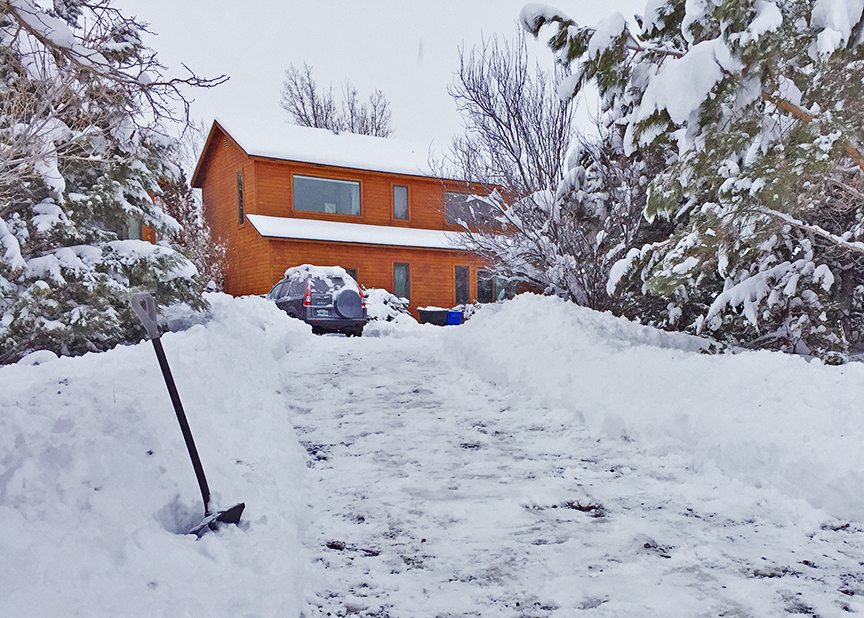Life happens. Unfortunately, injuries happen too. And in a spilt second, an injury can sideline you for weeks or even months as your body tries to heal. And with all the snow this winter, there’s potential for injuries— from constantly shoveling snow to skiing or riding in pristine powder.
When you are faced with an injury, what do you do? You have probably heard of the acronym R.I.C.E. from your doctor: Rest, Ice, Compression, and Elevation after an injury. But Chinese medicine takes a little different perspective on the ice and compression elements from this old adage.
Chinese medicine is based on the concept that “Qi” or vital energy flows through our bodies along with our blood. Trauma can obstruct the flow of qi and blood, and if left untreated, or improperly treated, injury can become chronic, recurrent, or even debilitating.
Icing an injury is always a controversial question—at least in terms of Western medicine versus Chinese Medicine’s approach to injuries. In Chinese Medicine, ice is rarely used after the first 24 hours of an acute injury as it contracts blood vessels, stagnates and congeals blood and fluids. This can slow healing and lead to long-term residual pain or further damage to the tissues.
Compression is usually done in the form of an elastic bandage wrapped snugly around an acute injury. But this also stagnates blood and fluids, usually pushing them out to the outside edges of the bandage. By avoiding compression, it’s easier to promote the flow of blood and fluids which helps the body heal faster.
Traditional Chinese medicine (TCM) tends to favor heat, especially to relax muscles as cold tends to constrict things. I was reminded of this recently when my back went into a major spam after a couple days of shoveling snow— I’ve forgotten how hard it is on the body! I thought of icing because it does numb pain, but putting cold on already cold muscles didn’t sound appealing. After a few hours, I applied heat to my back muscles and it did feel better.
I always say, listen to your body as it knows what it needs and use your own judgement to what feels best. According to TCM, you can ice an injury several times within the first 24 hours. After that, if you are inclined to ice, rotate it with heat—10 minutes of ice followed by 10 minutes of heat. This is helpful to promote circulation to the area.
Of course, getting a Western medicine diagnosis after an injury is important. You may want to get an x-ray or MRI to rule out fractures, ligament or tendon rupture. Ignoring it is not the best plan. But for speedier healing of an injury, consider adding in acupuncture, herbs and other holistic methods of Chinese medicine such as cupping and moxibustion.
Acupuncture is very effective in speeding up the healing process after an injury by promoting the body’s own repair mechanisms. When surgery is necessary, Chinese Medicine is indispensable to pre-op preparation and speeding post-recovery time. The same goes for physical therapy: acupuncture can help speed up healing and makes the physical therapist’s job a little easier as they can do more if there’s less swelling and pain.
A great compliment to acupuncture is topical and internal herbal remedies that help penetrate deeply into the body to stop pain, reduce swelling and inflammation, and disperse stagnant qi and blood. Some herbal products can also stop bleeding, mend tendons and even knit bone.
Injuries can be frustrating – you may be tempted to work through the pain by resuming physical activities right away (climbers are always tempted!). It may seem like a good idea (at least mentally) to get moving, and sometimes after the bulk of the healing has taken place, it is—movement helps to get things flowing again. But sometimes it truly slows healing if you resume doing things too quickly or you run the risk of compounding an injury.
Whatever the injury, just remember that you can heal quicker with the addition of acupuncture, herbs and other therapies from Chinese medicine in conjunction with Western medicine therapies. The sooner you address it, the sooner you can get back outdoors and resume your fun and adventures!

